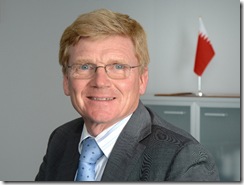Omani mobile reseller Mazoon Mobile began offering services as the country’s third mobile reseller behind Friendi Mobile and Renna at the end of November, having announced inking a deal with Nawras to utilise the network operator’s infrastructure. Friendi Mobile and Renna services are hosted on Oman Mobile’s network.
Friendi Mobile was the first to launch commercially at the end of April, and has since gone on to garner close to 150,000 subscribers. Renna, which launched less than a month after Friendi counts around 100,000 users, translating to a combined mobile market share of 7-8 per cent.
Given the presence of two existing resellers in Oman, as well as a further sub-brand launched by Friendi in collaboration with a local Omani radio station, it is hard to see where Mazoon is likely to pick subscribers up from.
“The point is we will need to differentiate,” commented Mohamed Al Hashili, CEO of Mazoon Mobile recently. “There is already a lot of activity in the market and we need to build a relationship with customers that they do not already have with any of our competitors,” he added without offering any specific examples.
Another concern Mazoon is likely to face is the fact that projected ARPU levels at the initial two resellers are understood to be lower than initially anticipated, resulting in the requirement for more subscribers to need to be added to their services in order for the operations to break even.
“While we have been surprised and delighted by the number of subscribers we have been able to add since launch, I will say that we are slightly behind or just on par on ARPU levels,” Niklas Nielsen, CEO of Renna’s parent company Majan Telecom said. “Despite this, we shall become cash flow positive by next year.”
Independent consultants have estimated that it now takes the addition of 170,000-200,000 subscribers in order for a reseller in Oman to become profitable, when that figure had originally been estimated at around 100,000. To compound matters further, it is understood that Nawras is required by the regulator to licence one more reseller, a development that is expected imminently.




